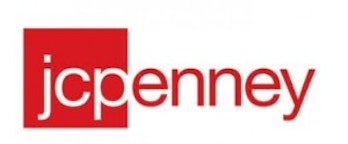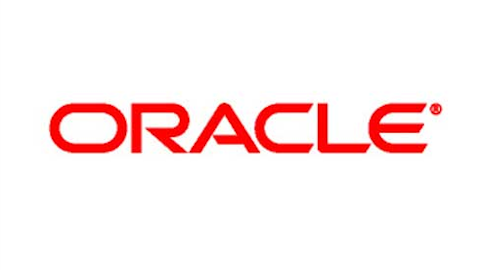Being edgy has hurt investors in several stocks over the last year. Edgy can just fall flat or easily become uncomfortably offensive and backfire miserably.

Under new (not really so new, he was CEO before Ron Johnson) Myron Ullman the company issued a public apology for the company’s missteps announcing it was now listening to customers.
Whether that was too little, too late is up for debate. The performance of the stock is not, as it lost 29.48% of its value over the last year. The company had already cut the dividend, laid off employees, and taken on more debt, most recently receiving a $2.25 billion loan from Goldman Sachs.
JCP Total Return Price data by YCharts
Yes, that is one unhip chart and the company was already in trouble before Ron Johnson’s tenure, subject to the same shopping trends away from the middle-market department store space that have troubled competitor Sears Holdings Corp (NASDAQ:SHLD).
What now?!
Abercrombie & Fitch Co. (NYSE:ANF) has morphed over the decades from a sporting goods company to a prepster retailer, now aspiring to hipness. In an attempt to be edgy, the company stepped in it again . Popular singer Taylor Swift’s fans deluged their customer service lines in protest after the company offered a T-shirt saying “#more boyfriends than t.s.” Translated: the wearer has more boyfriends than Taylor Swift. The company quickly withdrew the shirt.
This closely followed widespread backlash over exclusionary comments by CEO Michael Jeffries resurfaced about the company’s marketing strategy to attract only the cool and attractive kids and by its lack of larger sizes.
To be fair, Abercrombie & Fitch Co. (NYSE:ANF) has received a perfect 100% score for six years straight on the Human Rights Campaign’s Corporate Equality Index rating corporate policies and practices on workplace equality of LGBT employees. That good news was soon overshadowed by an age discrimination suit filed by Jeffries’ fifty-something pilot The suit brought to light a bizarre 40-page manual for Jeffries’ private Gulfstream staff mandating boxer shorts, flip flops, and Abercrombie & Fitch Co. (NYSE:ANF)cologne, to the required, “No problem,” in answer to all requests.
Almost monthly another PR ruckus erupts at this company, including a furor two years ago over padded push up bikinis for tweens as well as thongs. What investors should really be on edge about is Jeffries’ compensation of $8.5 million, the highest CEO pay per worker annual salary (worth 1,640 employees), and a Board that authorized that pay after a 30% decline in share price.
If you hold shares in a company that causes you to moan, “What now?!” as yet another embarrassing headline comes over the feed that’s your cue to get out while the getting is good.
If the company was outperforming, even if they have to pay the PR staff triple golden overtime, you could shrug it off telling yourself the old show biz adage, “Any publicity is good publicity.”
The company isn’t outperforming, reporting disappointing numbers at its May earnings release. On numbers like trailing P/E at 14.12 and a 1.70% yield with a PEG of .86 it doesn’t look that bad but management’s lack of judgment should worry investors.
With so much competition in the teen retail space: American Eagle Outfitters (NYSE:AEO), The Gap Inc. (NYSE:GPS), Urban Outfitters, Inc. (NASDAQ:URBN), and The Buckle, Inc. (NYSE:BKE), there are better alternatives.
Not in the same league
PepsiCo, Inc. (NYSE:PEP), the food and beverage giant, pulled a Mountain Dew commercial and apologized for racist content in May. The offending commercial featured a goat in a police line-up with five African-American men after a waitress who didn’t bring Mountain Dew fast enough is assaulted by the goat.
PepsiCo, Inc. (NYSE:PEP), in an effort to be edgy and relevant, gave carte blanche to rapper/producer/ video maker Tyler, the Creator to come up with something new for the Dew. Dr. Boyce Watkins wrote an impassioned piece defending point by point why he called it the most racist commercial in history.
PepsiCo also withdrew its sponsorship of rapper Lil Wayne’s tour after the family of Emmitt Till protested a truly offensive song of his (see Dr. Watkins link).
PepsiCo’s quick response may have mitigated a serious lapse in judgment from being an all-out PR disaster and averting a possible boycott. PepsiCo cleaned up its mess and apologized before the stock took a hit.
PepsiCo is not in the same league as the other two; it isn’t in a challenged retail space nor regularly causes controversy. CEO Indra Nooyi is one of the most accomplished CEO’s around. It operates in 200 countries with over 22 brands generating $1 billion in revenue in 2012.
The company returned $6.5 billion in dividends and buybacks in 2012 and has gown its emerging market share of net revenue to 35%. It trades at a 20.53 trailing P/E with a 2.80% yield.
When edgy sets you on edge
View lapses in judgment in the context of the corporate culture. J.C. Penney Company, Inc. (NYSE:JCP)’s attempts at relevancy came off as desperate last ditch measures of a dying business. Abercrombie & Fitch Co. (NYSE:ANF) has a serious problem at the management level and I wouldn’t touch it, not with better retailers to buy.
PepsiCo should be forgiven—its mistake as it wasn’t endemic of deeper concerns. Just don’t let it happen again.
The article When Being “Edgy” Puts Your Portfolio At Risk originally appeared on Fool.com and is written by AnnaLisa Kraft.
AnnaLisa Kraft has no position in any stocks mentioned. The Motley Fool recommends PepsiCo. The Motley Fool owns shares of PepsiCo. AnnaLisa is a member of The Motley Fool Blog Network — entries represent the personal opinion of the blogger and are not formally edited.
Copyright © 1995 – 2013 The Motley Fool, LLC. All rights reserved. The Motley Fool has a disclosure policy.






